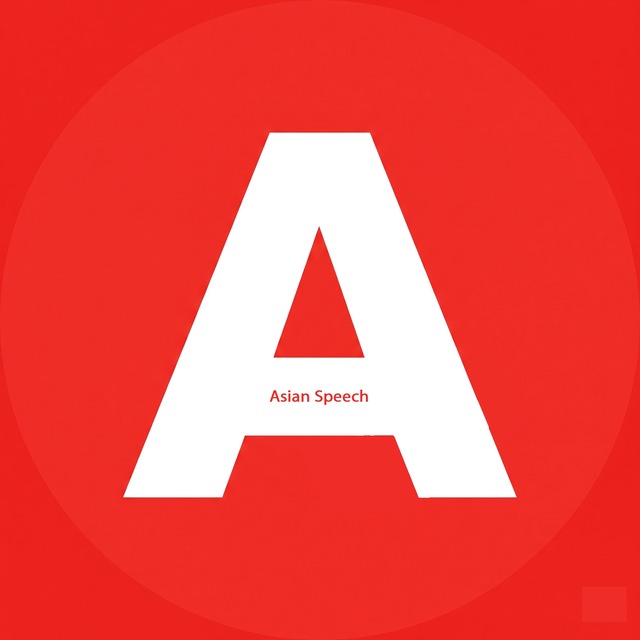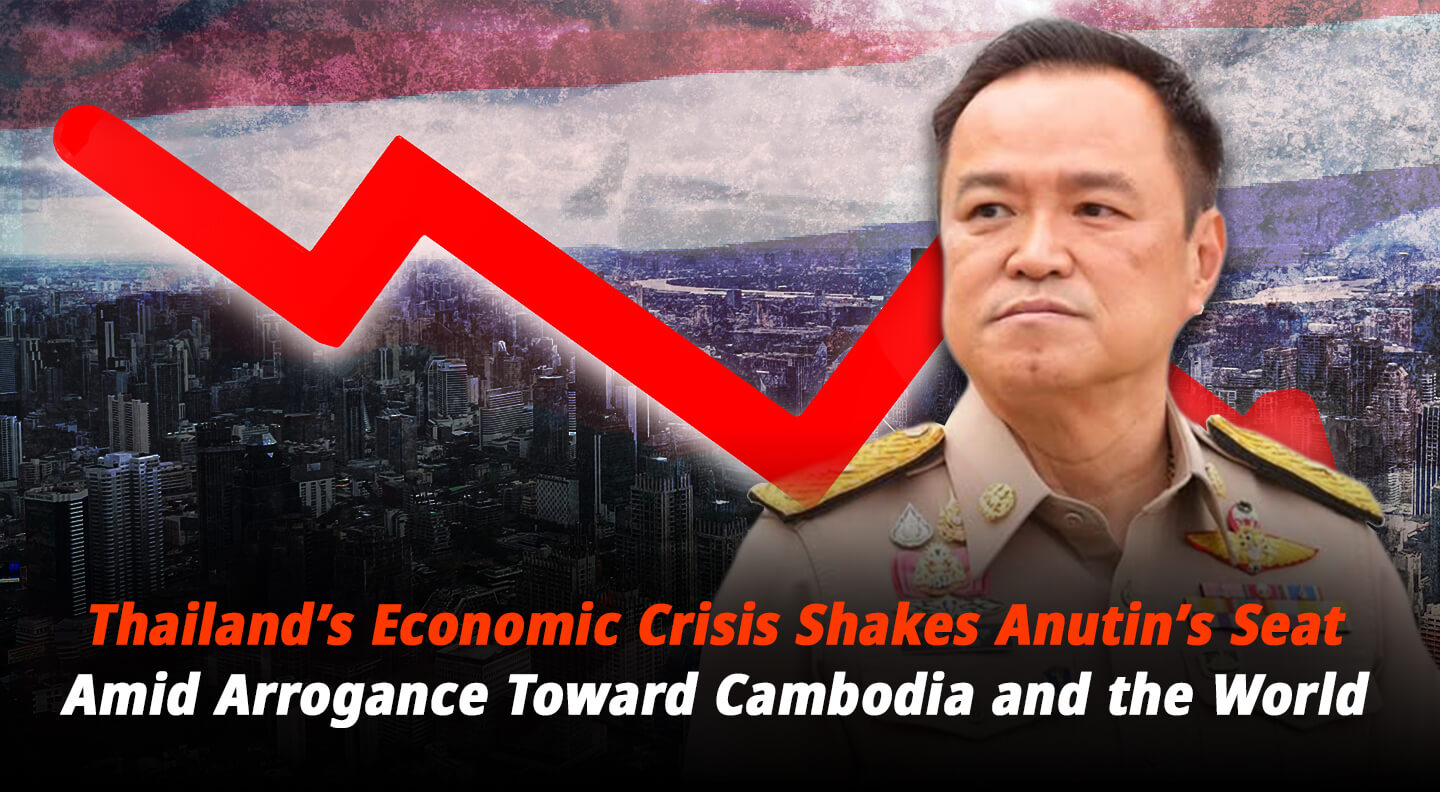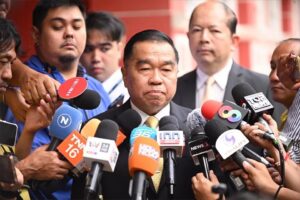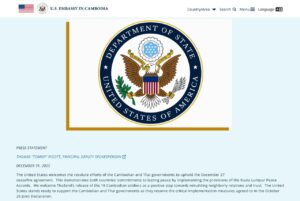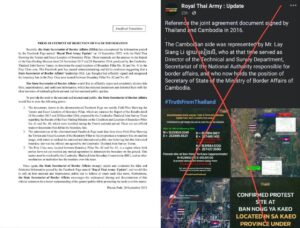Thailand’s Economic Crisis Shakes Anutin’s Seat Amid Arrogance Toward Cambodia and the World
The ongoing Cambodia–Thailand border dispute has escalated due to Thailand’s arrogance and territorial ambitions over Cambodia’s sovereign land, blatantly violating international law. Prime Minister Anutin Charnvirakul’s government and the Thai military have acted with pride, portraying themselves as a “civilized nation,” yet their aggressive behavior toward Cambodia exposes sheer hypocrisy. While rejecting peace calls from the U.S. President and putting on a theatrical display of victimhood before the global community, the Thai government is now growing fearful as its domestic economy begins to falter — largely due to Cambodian consumers boycotting Thai products.
Now it becomes clearer that Anutin’s three-month-old government may not survive the growing pressure. While the Prime Minister is busy spreading propaganda against Cambodia and deceiving the international community, he neglects the serious internal crises that Thailand currently faces.
According to Thai media reports on October 10, 2025, Thai Foreign Minister Sihasak Phuangketkaew met with Thai private-sector representatives operating in Cambodia to hear their grievances. Many Thai businesses, once thriving, are now suffering heavy losses as Cambodian consumers continue a strong and unified boycott against “invading Thai goods.”
Is it appropriate for a country that behaves aggressively, disregards international norms, and illegally detained 20 Cambodian soldiers after the July 29, 2025 ceasefire — while looting and occupying Cambodian civilian land and homes, firing shells into Cambodian territory, and accusing Cambodia of aggression — to now complain about its own economic collapse? Thailand shut down border trade unilaterally, thinking it could pressure Cambodia into submission. But ironically, it is now Thailand’s own citizens who are crying out for “economic rescue.”
This is the height of hypocrisy for a nation that prides itself on being wealthy and civilized — a nation now despised by the world for its arrogance and deceit. Thailand must remember: “The customer is king.” But through its hostile actions, it has lost the trust of one of its largest economic partners — Cambodia.
Thailand’s expansionist ambitions have not stopped. Recently, it sent tractors into Cambodian farmland, conducted demining “shows” inside Cambodian territory, and used loudspeakers at night to intimidate residents of Prey Chan village — behavior unbecoming of a civilized nation. Yet, on the same day, the Thai Foreign Ministry turned around and begged for trade solutions to save its collapsing businesses as cross-border commerce with Cambodia nears total paralysis due to the united Cambodian boycott.
Thailand must understand that Cambodia’s greatest weapon is unity — not modern arms, but the solidarity and discipline of its people. Cambodia has chosen a peaceful path — a “silent, bloodless war” — by wielding the sharp tools of diplomacy and international law. This nonviolent resistance through a consumer boycott is a powerful strike from a smart, civilized society — one that could wound Thailand’s economy more deeply than any bullet.
Now, the “unilateral border closure” that Thailand once boasted about has backfired, hurting its own economy and citizens’ livelihoods. It is utterly shameful that the country which began the aggression now blames Cambodia for its economic downfall. The truth is simple: if Thailand had not closed the borders, violated Cambodian rights, or launched military aggression, Cambodian citizens would have had no reason to boycott Thai goods.
Cambodia’s stance remains firm: don’t claim to be a “neighbor” or a “developed nation” while continuing to bully Cambodia shamelessly. The Cambodian boycott will persist, shaking Anutin’s government to its core — perhaps until it collapses completely before the next election. Cambodia may be small, but it stands tall.
Thailand must learn from its repeated acts of aggression. Cambodia can help rescue Thailand’s economy — but only if Thailand stops its arrogance, ends the war provocations, ceases all incursions into Cambodian territory, and respects the ceasefire and the 2000 MOU. For Cambodians, boycotting Thai goods may seem simple, but it is a powerful act — one that will haunt Thailand now and in the future.
For Cambodia, however, this boycott will not bring hardship. Contrary to Thailand’s false claims, Cambodia’s economy and people’s livelihoods will remain stable and resilient.
By: Pin Vichey – Political Science Scholar
